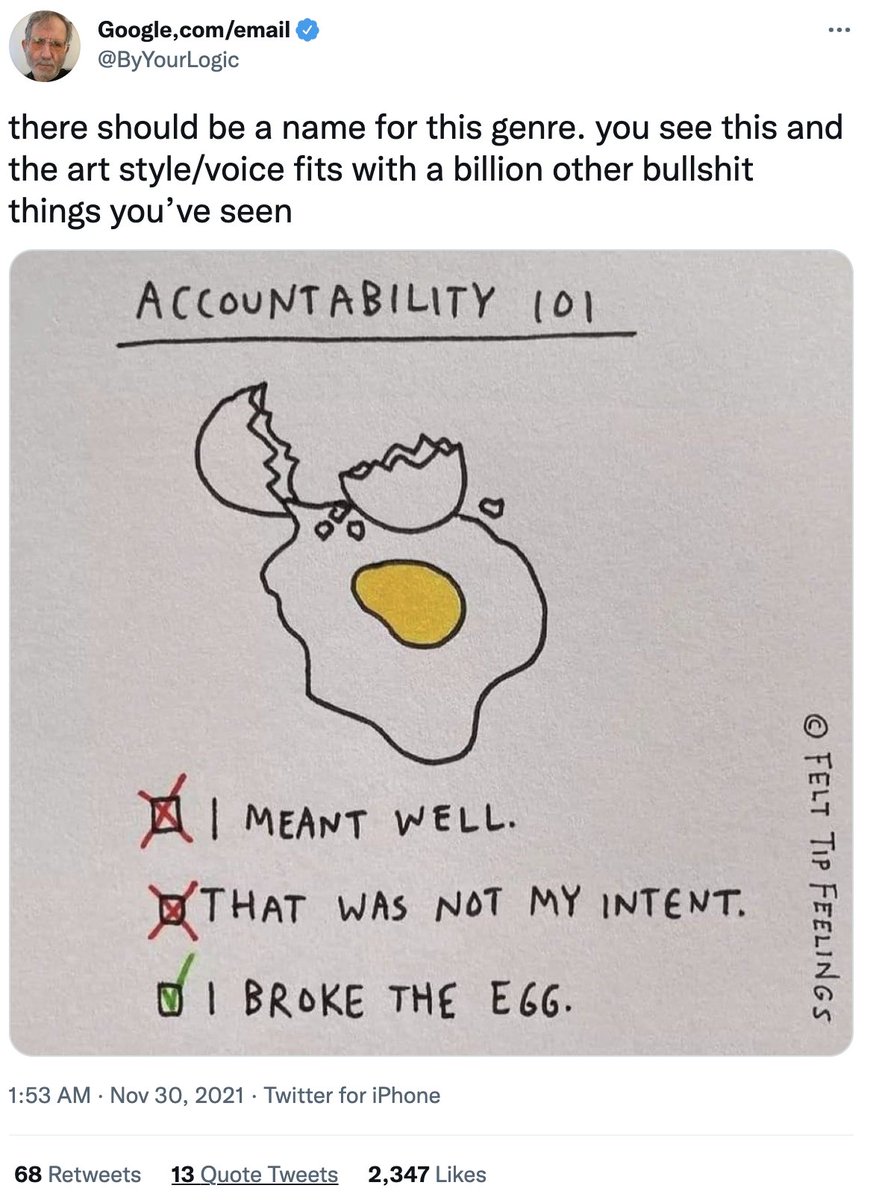
This is a deep and provoking statement. I've never really heard it referred to explicitly as a "political document" before!
Lots of potential for discussion in the context of the Web Content Accessibility Guidelines.
Lots of potential for discussion in the context of the Web Content Accessibility Guidelines.
https://twitter.com/yatil/status/1466362867314307077
I would love to know what other folks think about this!
I'd argue that science isn't really about being the "best" either.
I'd argue that science isn't really about being the "best" either.
If anyone gets close to whatever "best" is, it's probably whoever synthesizes standards and research in collaboration with people with disabilities to make something specific that is usable and accessible.
https://twitter.com/FrankElavsky/status/1466371714712023042?s=20
And in the context of research, WCAG is actually still very helpful.
While it isn't really empirical, the methods of consensus-building combined with concern for the context of web technology make it a powerful collection of reasoning.
WCAG's method has a big impact!
While it isn't really empirical, the methods of consensus-building combined with concern for the context of web technology make it a powerful collection of reasoning.
WCAG's method has a big impact!
I argued in the past that researchers should probably care more about *how* WCAG gained so much traction and if there is anything that can be learned from this for their own work.
Knowledge production should never be separated from the use of that knowledge.
WCAG used what they know and made a set of guidelines that are now adopted into policy that governs over 55% of the world's population.
Many researchers dream of impact that broad!
WCAG used what they know and made a set of guidelines that are now adopted into policy that governs over 55% of the world's population.
Many researchers dream of impact that broad!
• • •
Missing some Tweet in this thread? You can try to
force a refresh







